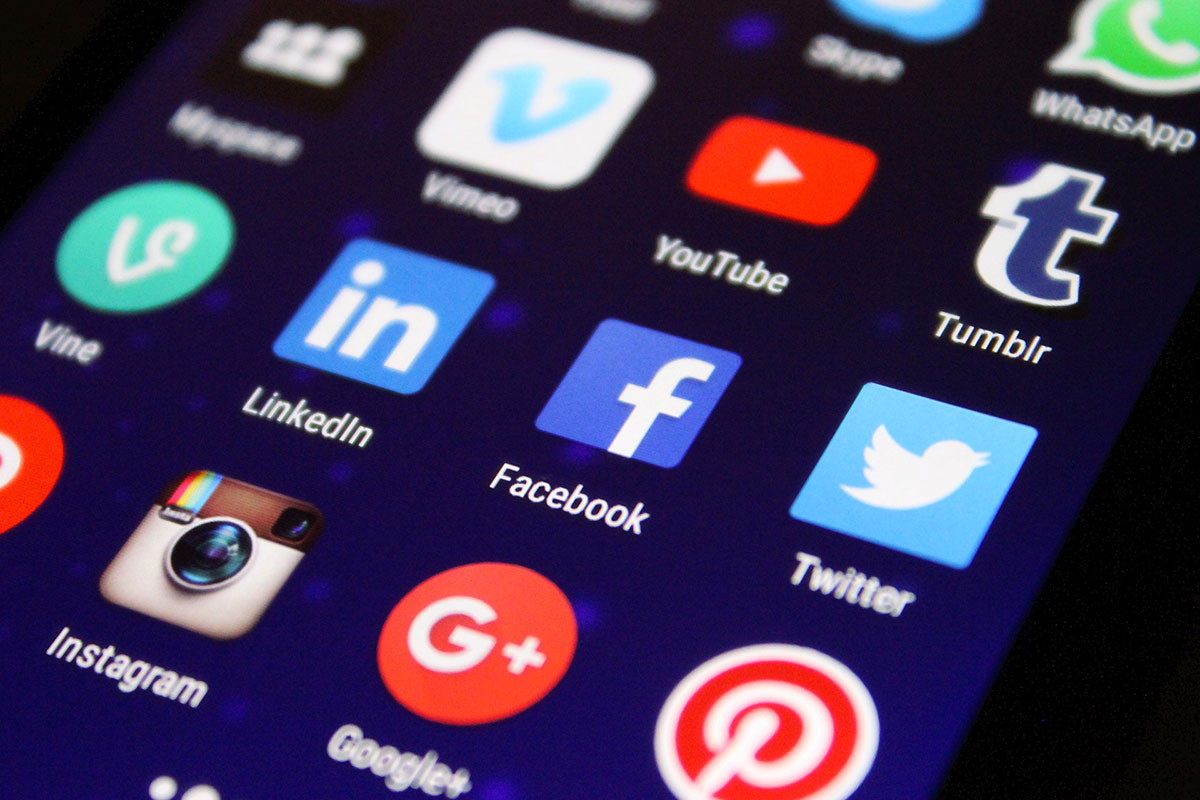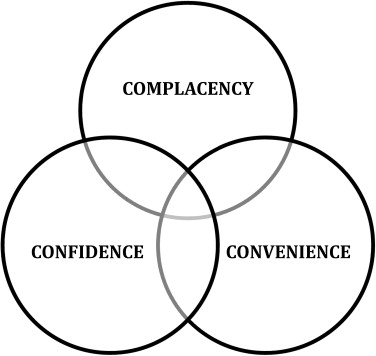Facebook, Twitter, Google and Instagram have – quite accidentally – becomes some of the biggest influencers in public health. Now, reeling from criticism that their laissez-faire approach to pseudoscientific information has triggered measles outbreaks and dips in HPV vaccine uptake, they are scrambling to contain the contagion.
Background:#FakeNews: Should Search Engines Dump Pseudoscience?

Before we assess the scale of the problem and the steps tech firms are taking against anti-vaccine messages, let’s get a few things straight. First, most people ensure their kids are vaccinated; they follow the carefully-calibrated advice of health authorities and their own doctors.
Second, while so-called ‘anti-vaxxers’ are having a disproportionate impact on public attitudes to immunisation, they are only a tiny minority. Of those who opt out of recommended vaccines, some are hesitant or concerned about the safety or effectiveness of vaccines.
Others are unvaccinated not because they lack confidence in vaccines but because they are complacent about the need to protect against diseases they see so rarely. Of course, we’ve seen that complacency is an open door to highly infectious viruses – like measles – which can swiftly make a comeback if levels of protection are too low.

The 3 Cs of vaccine hesitancy: Complacency, Confidence, Convenience
Finally, it would be a mistake to presume to know the reasons for low vaccination rates. A better approach would be to ask people to discuss the issue. One of the best examples is found in London where ultraorthodox Jewish communities had low vaccine uptake. Did they have a religious objection? Had rumours been circulating locally or through online networks?
None of the above: it turned out that the answer was much more mundane. The average family had seven children and many mothers – almost always the primary carer in that community – tended not to drive. Keeping appointments at immunisation clinics involved transporting a group of children by bus in a bustling city.
Given the competing demands on their time, and perhaps the lower urgency attached to preventative health, many of these vaccination appointments were skipped. Armed with this knowledge, health authorities worked with the community to find ways to make it easier for them to vaccinate their kids.
More: Are social media to blame for decline in vaccine uptake?

Searching for answers
All of that said, search engines and social media appear to have fanned the flames of anti-vaccine sentiment in recent years. The internet influences vaccine uptake rates, yet search engines mislead parents by sending them to websites of ‘dubious quality’. Social media networks – Facebook, Twitter, Instagram, WhatsApp, Pinterest to name but a few – have also contributing to the sharing of anti-vaccine information.
This is not surprising. One of the first things we all do when we have questions about something is search online – in addition to considering the advice of experts, family and friends. When they do, they often find a confusing range of answers. A study in the UK suggested that half of all parents of small children had been exposed to anti-vaccine information.
In many cases, people searching for vaccines information are coming to the topic for the first time. Parents invited to avail of infant immunisation programmes are also among the busiest people on the planet. Some are not tired, stressed and juggling multiple complex tasks – but many are. And they need answers to questions quickly because they are solving a lot of new problems simultaneously.
Anti-vaccine groups were early adopters of social media, mastering the art of simple, emotional messaging that sow seeds of doubt in readers’ minds. They don’t even have to convince parents that vaccines are actually harmful or ineffective, they just need to cloud the issue. Presented with the impression that the ‘jury is out’ on vaccines (it is not), or that experts are divided (they are not), the default of some concerned parents may be to do nothing.
Social responsibility
One of the key reasons that Vaccines Today was founded almost 10 years ago was to help provide quality, resonant information about vaccines and vaccine-preventable diseases. By sharing this information on social media networks used by parents – and networking with like-minded organisations – the goal is to provide high-quality answers to the reasonable questions some parents ask.
However, public health advocates have long complained that search engines are leading people astray by ranking websites according to their population rather than their quality. Tech firms, initially uneasy about becoming arbiters of scientific information, have belatedly accepted that they have a responsibility to the online communities they have built.
They are publishers, moderators and curators, making decisions (via their algorithms) that determine what the public finds online.
Twitter: nudging users towards facts
Del Harvey, Twitter’s VP for Trust & Safety, has unveiled a tool that displays information from health authorities when a user searches for information on vaccines.
There’s a lot of information about #vaccines online, but not all of it is accurate. Find credible, expert-approved information at https://t.co/jDq2UIHFmT.
— HHS.gov (@HHSGov) April 30, 2019
Twitter already ensures that advertising content does not contain misleading claims about the cure, treatment, diagnosis or prevention of certain diseases and conditions, including vaccines. And it actively promotes information about mental health for people using search terms that suggest they may need counseling or support.
‘At Twitter, we understand the importance of vaccines in preventing illness and disease and recognize the role that Twitter plays in disseminating important public health information,’ said Harvey. ‘We think it’s important to help people find reliable information that enhances their health and well-being.’

Instagram & Pinterest lead the way
Instagram, an image-based social network now owned by Facebook, announced last month that it would block posts that used anti-vaccine hashtags. This ‘purge’ made headlines and earned Instagram some plaudits for deploying machine learning to identify hashtags most commonly associated with misinformation.
Pinterest – another image-heavy network – has also taken action. Users can no longer post links to anti-vaccine websites or search for terms likely to turn up anti-vaccine information. Pinterest has been building a ‘blacklist’ of ‘polluted’ search terms on a range of topics ranging from measles to suicide.
‘We’re a place where people come to find inspiration, and there is nothing inspiring about harmful content,’ said Ifeoma Ozoma, a public policy and social impact manager at Pinterest. ‘Our view on this is we’re not the platform for that.
It was a bold move for a platform previously a haven for pseudoscientific views and stylised posts from lifestyle gurus. A study in 2016 showed that 75% of vaccine-related posts on Pinterest were anti-vaccination. Now, having ditched dubious content, it continues to allow pro-science organisations – like Voices for Vaccines – to discuss immunisation.
Facebook ‘likes’ vaccines
Mark Zuckerberg may have publicly expressed personal support for immunisation – once posting a photo of his infant daughter on the day of her first vaccines – but Facebook has been slow to figure out how to deal with anti-vaccine posts. Facebook groups have helped to spread anti-vaccination memes and mobilise anti-vaccine voices online.
Now, Facebook says it will no longer allow this material to be promoted through advertising and it will make anti-vaccine results less prominent when people search for information.
Rather than take down anti-vaccine posts, it is exploring ways to give users more context using ‘expert organisations’. What this means is not entirely clear but it may look a little like the Twitter approach: allow people to search for negative keywords but serve them some results with high-quality information.
YouTube: vax, lies and video
For years, YouTube has been among the most problematic social media. It is, in essence, a search engine (owned by Google) that serves users videos – some of which are sponsored, while others have ads embedded in them.
Public health advocates have long complained that anti-vaccine content appears in the ‘suggested videos’ that are automatically generated by the YouTube algorithm – meaning that misinformation frequently auto-plays even after a scientifically sound video about measles.
Now YouTube says it will prevent anti-vaccine YouTube channels from making money. Some of these channels had previously created salacious, highly-sharable but dangerous videos that attract high numbers of viewers. Thanks to their millions of viewers, the channels were able to sell ads and collect a portion of the cash from YouTube/Google.
YouTube will provide information on vaccine hesitancy (sourced from Wikipedia) before anti-vaccine videos. Information panels on MMR vaccines are also appearing in from of anti-vaccine videos in an effort to curb the impact of misinformation without censoring user-generated content.

Amazon, WhatsApp, Snapchat and the rest
Amazon has come under fire for selling and promoting unscientific films and tomes about vaccines. It has expressed a reluctance to remove books, fearing accusations of censorship.
However, in an era of low-cost digital self-publishing, there has been a proliferation of pseudoscientific books. Most are not on sale at reputable book stores but Amazon has (almost) no limit to the range of titles it can accommodate. These means books repeating false claims about vaccine safety by Andrew Wakefield from the UK and Henri Joyeux from France, are easily found.
Meanwhile, newer social media channels face the same challenges as larger incumbents. Snapchat is currently among the preferred networks for adolescents and young adults. Kylie Jenner, a celebrity known for her appearances on The Kardashians, has used it to share anti-vaccine cartoons.

WhatsApp is among the most widely used messaging services in the world. What may once have been viewed as a relatively simple web-based text messaging service has grown into a powerful social medium. While SMS text messages are typically sent from one person to another, WhatsApp groups enable large communities to share text, images and videos.
In India, WhatsApp has been accused of facilitating the spread of anti-vaccine rumours. One of the distinct challenges arising from the use of WhatsApp is that it is a closed, encrypted platform. Unlike blogs, Twitter and some Facebook groups, academic researchers and health authorities have no visibility of what is popular on WhatsApp.
The Vaccine Confidence Project, led by Prof Heidi Larson, works to detect early signals of rumours and vaccine scares before they snowball. This work could help researchers and health experts to engage with communities that have questions about vaccines before an outbreak of vaccine hesitancy turns into an outbreak of measles or mumps. The trouble is that the shift to WhatsApp means a chunk of the online conversation is now inscrutable.

Positive next steps
Social media giants and search engines must be responsible actors in society. They provide valuable services and, in many cases, earn large profits. It is not enough to stand back and claim that it’s out of their hands.
They are not couriers, they are publishers. Like newspapers and broadcasters, they must be accountable. And, to a degree, they already are: large teams of moderators patrol Facebook to remove videos of beheadings, racist messages that incites hatred, and content that promotes illegal activity. They should accelerate their efforts on public health issues.
However, it’s not enough to blame tech giants. Blocking malign content or diverting traffic to high-quality material helps but we can all do more. We need to give parents answers to their questions.
We must offer empathy, give them reasons to vaccinate, and motivate them to match their intention with action. And we need to make it as easy as possible to complete the vaccine schedule on time, every time.
Finally, those of us seeking to provide reliable information on vaccinations need to network if we are to maximise our impact. This is why Vaccines Today was established. We want to answer questions and to engage – and we want to be found in Google searches and on social media.
By following and sharing high-quality, resonant content, we can ensure that the public finds what it’s looking for. Together we can turn the tide and push vaccination rates to an all-time high – wiping out measles, and polio, and maybe even cervical cancer in our lifetimes.
What determines which websites we see when we search for information about vaccines? The mysterious Google Algorithm (known as PageRank) is the most powerful force in online media.
Where can you find reliable vaccine information?
Search engines could give extra weight to websites that have been independently reviewed and approved by Health on the Net or the WHO Vaccine Safety Net project. These websites go through regular review to maintain accreditation.
(Disclosure: Vaccines Today is a member of the Vaccine Safety Net and is HoN accredited.)
This Vaccines Today page is the top result in many European countries when web-users ask Google ‘What is herd immunity?’ Feel free to watch it, share it and embed it in your site.





Kam
October 22nd, 2019
Is this how thre freedom of speech looks like in XXI century?
Fred C Lupher
May 11th, 2020
Wow, how can you describe this as anything other than “Big Brother Censorship”. I thought this country was all about sharing opinions and letting everyone decide for themselves? I seem to recall the 1st amendment mentioning something called free speech.
Gary Finnegan
May 12th, 2020
Which country and amendment are you referring to Fred?